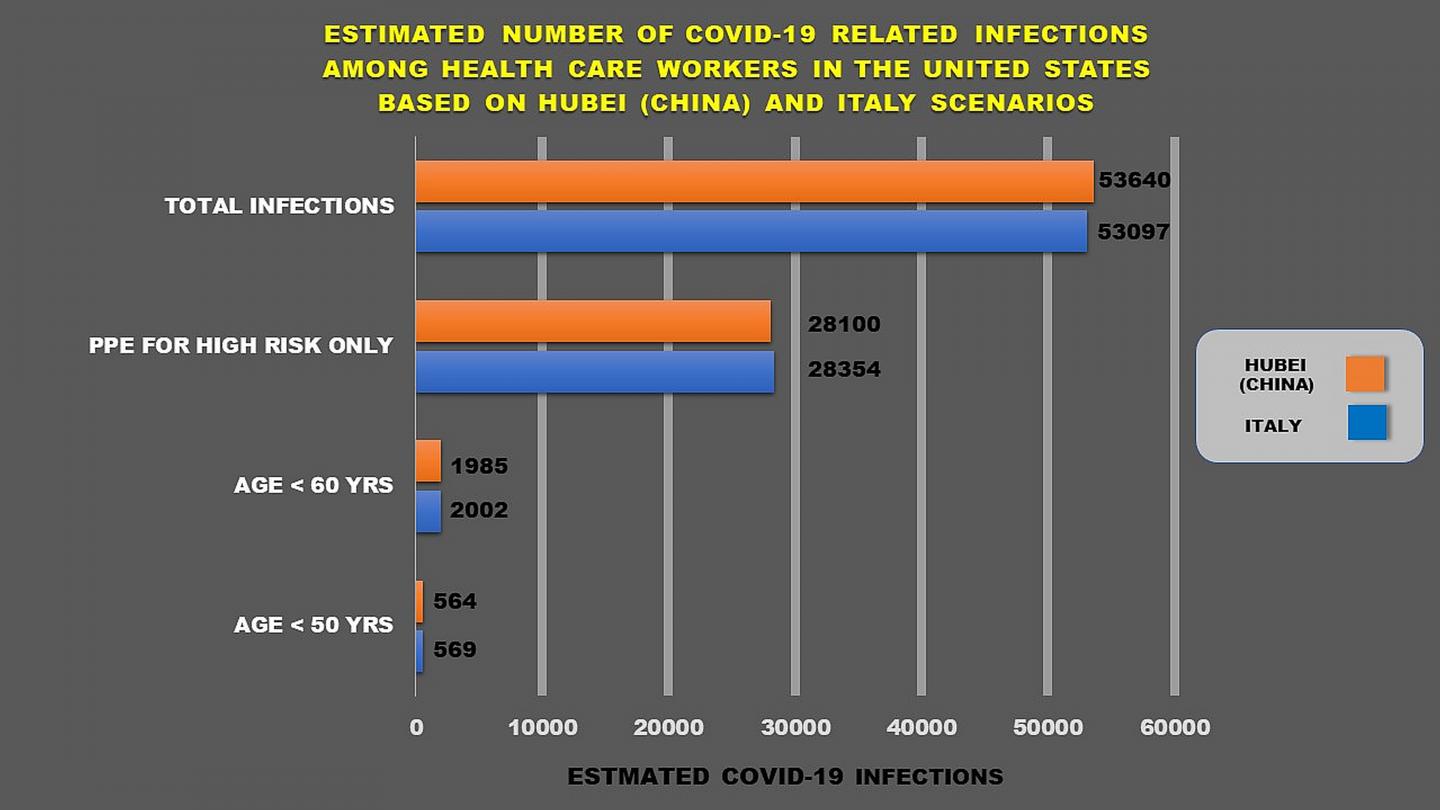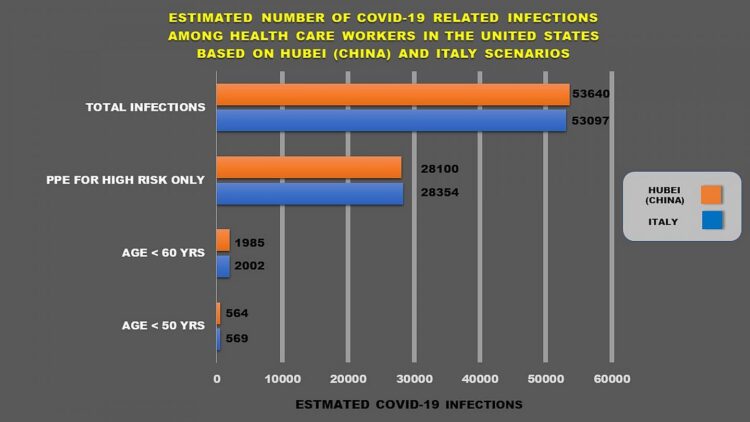
Credit: Graphic created by M.E. Newman, Johns Hopkins Medicine, from data in Razzak et al, PLOS ONE 15(12): e0242589
During the COVID-19 pandemic, health care workers have been at the forefront of the battle against the life-threatening illness. Sadly, they are not immune to the effects of the disease. Many have contracted COVID-19, and some have died.
In a paper published Dec. 4, 2020, in the journal PLOS One, Junaid Razzak, M.B.B.S., Ph.D., director of the Johns Hopkins Center for Global Emergency Care, and his colleagues estimated the impacts of COVID-19 on the U.S. health care community based on observed numbers of health care worker infections during the early phase of the pandemic in Hubei, China, and Italy, areas that experienced peaks in COVID-19 cases before the United States.
“We looked at what was known from other countries earlier in the pandemic and modeled the impact on the health of the front-line health care workers in this country to see what gains were possible here if known interventions were applied,” says Razzak, who is a professor of emergency medicine at the Johns Hopkins University School of Medicine.
Using a Monte Carlo risk analysis simulation model to predict outcomes and based on data from China and Italy, Razzak and his team estimate that between 53,000 and 54,000 U.S. hospital workers could become infected with COVID-19 during the course of the pandemic. The team projects the number of U.S. hospital worker deaths for the same time period at approximately 1,600.
The estimates by the researchers also suggest that if health care workers considered high risk — including those over age 60 — wore appropriate personal protective equipment — such as gowns and face masks — the number of infections would decrease to about 28,000 and the number of deaths to between 700 and 1,000. If hospital workers age 60 and over are restricted from direct patient care, then the predicted numbers could drop to 2,000 infected and 60 deaths.
Razzak and his team say that since the current COVID-19 mortality among U.S. health care workers has surpassed their original estimates, it proves that this group bears — and will continue to bear — a significant burden of illness due to COVID-19.
“Our analysis shows that continuous widespread and proper use of personal protective equipment, along with limiting exposure for hospital workers over the age of 60, are necessary measures for this country to take now,” Razzak says. “These efforts will save the lives of health care workers who will then be able to save the lives of others infected with COVID-19.”
###
Razzak is available for media interviews.
Media Contact
Kimberly Polyniak, M.A.
[email protected]
Related Journal Article
http://dx.





